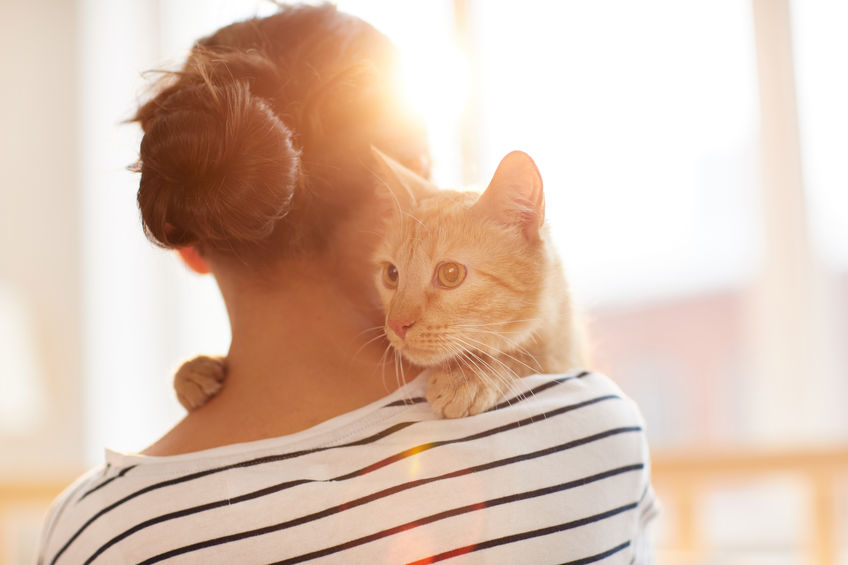Having pets linked to maintaining better mental health and reducing loneliness during lockdown, research shows
Posted on 25 September 2020
 More than 90 per cent of respondents said their pet helped them cope emotionally with the lockdown.
More than 90 per cent of respondents said their pet helped them cope emotionally with the lockdown.
Most people who took part in the research perceived their pets to be a source of considerable support during the lockdown period (23 March - 1 June, 2020).
The study - from the University of York and the University of Lincoln - found that having a pet was linked to maintaining better mental health and reducing loneliness. Around 90 per cent of the 6,000 participants who were from the UK had at least one pet. The strength of the human-animal bond did not differ significantly between species with the most common pets being cats and dogs followed by small mammals and fish.
More than 90 per cent of respondents said their pet helped them cope emotionally with the lockdown and 96 per cent said their pet helped keep them fit and active.
Worried
However, 68 per cent of pet owners reported having been worried about their animals during lockdown, for example due to restrictions on access to veterinary care and exercise or because they wouldn’t know who would look after their pet if they fell ill.
Lead author Dr Elena Ratschen from the Department of Health Sciences University of York said: “Findings from this study also demonstrated potential links between people's mental health and the emotional bonds they form with their pets: measures of the strength of the human-animal bond were higher among people who reported lower scores for mental health-related outcomes at baseline.
“We also discovered that in this study, the strength of the emotional bond with pets did not statistically differ by animal species, meaning that people in our sample felt on average as emotionally close to, for example, their guinea pig as they felt to their dog.
“It will be important to ensure that pet owners are appropriately supported in caring for their pet during the pandemic.”
Stress
Co-author Professor Daniel Mills from the School of Life Sciences at the University of Lincoln said: "This work is particularly important at the current time as it indicates how having a companion animal in your home can buffer against some of the psychological stress associated with lockdown. However, it is important that everyone appreciates their pet's needs too, as our other work shows failing to meet these can have a detrimental effect for both people and their pets."
Dr Ratschen added: “While our study showed that having a pet may mitigate some of the detrimental psychological effects of the Covid-19 lockdown, it is important to understand that this finding is unlikely to be of clinical significance and does not warrant any suggestion that people should acquire pets to protect their mental health during the pandemic.”
More than 40% of UK households are estimated to own at least one pet.
The study also showed that the most popular interaction with animals that were not pets was birdwatching. Almost 55 per cent of people surveyed reported watching and feeding birds in their garden.
Explore more news

Sodium channels in breast cancer cells a promising target for future treatments, study reveals
Thursday 25 July 2024

Cooling the classroom: University of York researchers to investigate UK schools’ responses to hot weather
Wednesday 24 July 2024

Hunter-gatherers kept an 'orderly home' in the earliest known British dwelling, study shows
Tuesday 23 July 2024

Study uses Game of Thrones to advance understanding of face blindness
Tuesday 23 July 2024

York academic contributes to new report on men’s health which reveals disparities between most and least deprived areas in the UK
Wednesday 17 July 2024
Media enquiries
About this research
The paper “Human-animal relationships and interactions during the Covid-19 lockdown phase in the UK: investigating links with mental health and loneliness” is published in the journal, PLOS ONE.
Explore more of our research.
Our response to the coronavirus pandemic
We're working with partners in York and further afield as part of a global effort to fight the COVID-19 virus. From covid analysis in the labs to producing face shields for the frontline, we're using our knowledge and expertise to support the effort.
